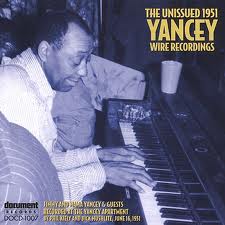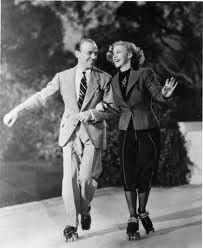Sitting in my back yard on a warm July afternoon, just enjoying the outdoorsness of it all, my reverie is interrupted by a pattern of bass notes. It sounds as though it’s coming from quite far away. Someone must be driving his car (must be a male) with the windows open, listening to bad music at incredibly loud volume. Someday he’ll have tinnitus but he probably doesn’t even know what that is.
The sounds continue for a while, perceptibly changing direction, until they finally fade out and disappear.
I immediately start to form an impression of this guy. He’s a jerk. Not only does he like bad music, he wants to force his own lack of taste on the rest of the world. He might as well have an amplified cast of his dick on the front of his car.
He obviously doesn’t care anything about the rest of the world. He eats McGreaseburgers and counts on my health insurance company to take care of him–by paying higher hospital rates than it should have to–when he shows up penniless and uninsured at the emergency room. He thinks things like organic food and conservation are stupid. Probably drinks a lot of beer, too–cheap beer, tasteless Budweiser, not Anchor Steam.
He’s one of those people who stands in the Woodstock post office, dumping his junk mail into the Waste bin and ignoring the Recycling bin a foot away. He probably has no idea of what recycling is, and if he did, he’d think it was a waste of time.
He cheats on his wife, God help her. I hope to God he doesn’t have any kids. If he does, he probably beats them.
He votes Republican, not because he approves of the party’s political philosophy, or even knows what it is. He just doesn’t like the idea of some black guy being president. If he ever met Romney at a party he’d probably wind up in a fistfight with him, but he’ll vote for him.
He likes to work just long enough so that he can get unemployment insurance, and then when it’s getting time for that to run out he starts looking for work again. He probably didn’t graduate from high school or get a GED.
He likes to shoot wild animals for excitement, and brings the corpses for someone else to cut up so he can jam them into his freezer.
….Or then, I suddenly realize, maybe he’s just some innocent teenager who likes the same music all his buddies like and wants to play it loud. Wasn’t there a time when I did that?
At the midnight showing of the movie “The Dark Knight Rises” in Aurora, Colorado, Jon Blunk heard gunshots being fired in the theater. Blunk, a military veteran, immediately reacted by pushing his girlfriend, Jansen Young, under a seat to protect her. While he was doing that, he was hit by a bullet and fatally wounded. Young was not injured.
the midnight showing of the movie “The Dark Knight Rises” in Aurora, Colorado, Jon Blunk heard gunshots being fired in the theater. Blunk, a military veteran, immediately reacted by pushing his girlfriend, Jansen Young, under a seat to protect her. While he was doing that, he was hit by a bullet and fatally wounded. Young was not injured.
At the same time, Matt McQuinn heard shots. He placed himself in front of his girlfriend, Samantha Yowler. He was hit by a bullet and fatally wounded. Yowler was not injured. 
Appalled as I am by the madman who committed these crimes, and by the mad industry that supplied him with his tools of death, I must pause for a moment to express my admiration of Jon Blunk and Matt McQuinn. Their spontaneous acts of heroism show me that there are still men in this culture of mine who know what to do in an emergency. I can only hope that in the same situation I would have acted in the same way.
Every time we have a mass murder in the United States, the same debates begin to rage again about gun control. Opponents of gun control inevitably cite the “Second Amendment,” meaning the second amendment to the U.S. Constitution appended as part of the “Bill of Rights.” Scholars point out that the Constitution is primarily a document designed to protect property rights. The rights of individuals are contained in those ten amendments.
Here is the exact text of the Second Amendment:
Amendment II
A well regulated Militia, being necessary to the security of a free State, the right of the people to keep and bear Arms, shall not be infringed.
Like every human endeavor, this isn’t perfectly done. If I had been the editor, even sticking with the formal language of the times, I would have written:
“The right of the people to keep and bear Arms, as part of the well regulated Militia necessary to the security of a free State, shall not be infringed.”
In other words, the intention of this amendment–still debated by constitutional scholars, but most of them agree with me–was to ensure that all citizens could take part in the defense of their country. This contrasts with the way militaries were run and staffed by the elite of other countries.
I won’t waste a lot of space discussing why I think the Second Amendment is no excuse for allowing a mentally ill person to purchase 6,000 bullets in a short period of time. Either you’re with me on this one or you’re not.
But let’s put human faces on this debate. The faces of twelve innocent victims. Two of them died as heroes. I will honor them as long as I live, as we all should.
Much has been made recently of the way the Romney campaign is able to raise much more money than the Obama campaign because of contributions from big donors. But one simple trick will enable them to outraise Romney and to strike a major blow for political dependence.
Romney’s campaign is accepting big donations from rich corporations and individuals who stand to gain something from favorable attention. But Obama has something to sell that will in itself assure that favorable attention: naming rights!
Companies have spent tens of millions of dollars to put their names on locations, so that, for example, every time a sporting event takes place at the Staples Center in Los Angeles, people are reminded that the Staples chain of stationery and office supply stores exists. But there’s no inherent connection between the company and the locale it sponsors.
Staples would get a lot more value for its money if it had naming rights to the Department of Education. That way, every time this important function of the federal government was mentioned, it would include a mention of an important supplier of materials used in schools.
Likewise, a huge new arena being built in Brooklyn will be known as the Barclays Center. People going to see Barbra Streisand or the Harlem Globetrotters may feel a moment of gratitude to this huge international bank for making the facility possible. But how much more, and more appropriate, attention Barclays would get if it were mentioned as sponsor of the Barclays Department of the Treasury!
Other obvious candidates suggest themselves immediately: the Halliburton Department of Defense, UnitedHealthcare Medicare, Monsanto Dept. of Agriculture, BP Department of Environmental Conservation, Citicorp Social Security. The possibilities are endless.
It’s important to assure that the sponsoring companies will not necessarily have any influence over the operations of the departments they sponsor.
The official “A-Z Index of U.S. Government Departments and Agencies” lists 35 departments and agencies under the letter A alone. I’ll have to get someone at the Access Board, the very first one listed, to count all of them through the whole alphabet.
Promising to name only the largest departments after donors should easily raise enough money to put Obama over the top. After the election, naming rights to all the remaining agencies could be auctioned off, with the proceeds going towards reduction of the National Debt.
But, you say, what happens if Romney wins the election anyway? Well, that’s already arranged. It will be the Bain Capital Presidency.
I’m not completely pleased with what the purchase of a Jimmy Yancey CD revealed about me.
I was looking to acquire more Yancey recordings, no doubt. During a car trip with my wife, I had played several discs from a blues anthology which included some Yancey. Every time he came up, she started tapping her foot along with the music. She responded equally well when I played a whole CD of Yancey for her. (It turns out she likes boogie woogie in general.) But I had only two Yancey CDs.
Does that matter? Yancey is a special case. I think of him as the Thelonious Monk of boogie woogie, a musician who despite an apparently limited technique managed to create compelling music. But unlike Monk, Yancey had a very limited repertoire. Many of his recordings are almost exactly the same music with different titles. One of the Yancey CDs I already had was Vol. 1 of a complete edition of his 78s, which runs to three discs. But there is so much repetition on Vol. 1 that I never felt compelled to buy the other two. (The other one I already had includes several items on which Yancey accompanies his wife in some creaky but tasty blues.)
Still, knowing I didn’t need any more Yancey, I still went looking at listings and found something I could not resist: “The Unissued 1951 Yancey Wire Recordings.” They were made at Yancey’s home, shortly before he died, at a small party. Conversation interferes with some of the music. Some of the recordings were damaged and have a lot of noise on them. And some of the music isn’t even played by Yancey. It’s played by other people who were at the party, the first four items by someone whose name nobody involved in the production could remember.
As soon as I read about this CD, though, I had to have it. I didn’t know about the limitations I’ve mentioned above until I got the disc, but I didn’t care. It was magic, Yancey that nobody had ever heard until this CD was issued. And the idea of wire recordings resonated strongly with me because when I was a kid my family had a wire recorder. I remember it as a low-fi medium, and the recordings on this CD are certainly not state-of-the-art for 1951. But they sound better than I would have expected.
So what does this CD add to my appreciation of Jimmy Yancey? Hardly anything. Actually I got more of interest from the extensive booklet than from the recordings. Yancey’s only known vocal is on one of these items (“Royal Garden Blues,” not typical Yancey repertoire), but it’s nothing special. I just had to have it, though. And having heard it and realized the limitations of its interest–I can’t even play it for my wife, who would probably find it annoying–I’m still not going to get rid of it.
That’s who I am. I’m a collector. I’ve managed to get a little more rational about this in recent years, but not enough.
While looking through my small boogie-woogie collection, though, I did revive my interest in a similar item from the same CD label, Document. It’s “Pete Johnson: The St. Louis Parties of July 30 and August 1, 1954.” Johnson is a very different musician from Yancey, an amazing virtuoso who could seeming play almost anything. On recordings he was typecast as a blues and boogie-woogie pianist, and there’s nobody better. But on these party recordings, Johnson plays a much wider range of music and shows us how good he could be with material like “Stardust” and “Perdido.” (He even plays “Yancey Special,” jokingly including references to other songs.) That’s the kind of revelatory recording that I don’t feel I need any excuses for keeping.
Recently I was watching, again, the Fred Astaire & Ginger Rogers movie “Shall We Dance?” and was surprised to find tears running down my cheeks.
The tears occurred during the amazing “Let’s Call the Whole Thing Off” number where, after the wonderful duet singing of the wonderful Gershwin song (Ira’s lyrics as important as George’s melody, both inspired), the two do a dance on roller skates. It’s an astonishing sequence, as close to perfection as anything human can be. As usual, Astaire insisted on filming in long takes so the audience could see that he and Ginger were actually able to do the whole number, not just small segments spliced together. (Accounts I’ve read indicate that Fred insisted on endless rehearsals.)
There’s something about seeing anyone do anything that well that I find extremely powerful and moving. I have those same goosebumps and tears when I hear Fats Waller play James P. Johnson’s “Carolina Shout.” That stride piano solo was what the Harlem pianists used to call a “cutting” piece, one that the pianists used to compete against each other. Johnson’s original recording is extremely impressive, but Waller has him beat.
Having once been a low-grade amateur pianist, I can feel viscerally how difficult it is to play that “stride” bass (single notes in the bass followed by chords an octave or so higher), hitting all the skips accurately. Waller does it with perfect accuracy and such lightness of touch that he makes it seem easy.
Some of my outside knowledge probably contributes to the intensity of my reaction. I know that Waller’s recording was made on a 78 master, so that what you hear is exactly what he played in that three minutes without any editing. (Much like Astaire’s long takes in the films!) He could have done it over until he was satisfied with a “take,” but he probably didn’t have to. In fact, there is an alternate take still in existence and it’s just about as good. And when you hear Waller in a radio broadcast playing his own equally-difficult “A Handful of Keys,” it’s always perfectly accurate too. I also know that Waller wanted to play classical piano, and even studied for a time with the master pianist Leopold Godowsky. He loved to play Bach’s organ music on church organs whenever he got the chance. But there were no opportunities for black classical pianists. And the recordings Waller made of classical organ music were destroyed by the company.
One of my long-held ambitions was finally realized in 2011 when I got to publish a two-CD set of live performances by my late friend Jacob Lateiner. During Jacob’s lifetime I had often suggested to him–even going back to the LP days of the late 1960s–that we issue live performances of his, but he always resisted. After he died in 2010, his widow Amy and I got our hands on a number of tapes of Jacob’s concerts and I selected two of them to publish.
The set simply had to include Jacob’s playing of Brahms’s “Variations on a Theme of Paganini.” He had recorded a technically amazing performance of the piece for Westminster in the 1950s, but in later years he had become very dissatisfied with that recording because he “found more music in the piece,” as he put it, and he was right. Listening to a recording of a performance given at the Juilliard School of Music in 1977 (for which I was in the audience,) I focused on the variation (No. 8 from Book 1) which requires even more difficult skips than “Carolina Shout.” Nobody plays it perfectly, not even the great Wilhelm Backhaus in his legendary 1927 recording (from 78 masters, so there’s no splicing there either). So I listened to find out how many of those bass notes Jacob missed in his live performance. None. And hearing that gave me the chills too.
I guess it’s artistic perfection that affects me the most. I remember, for example, walking through an ancient English estate outside of London and marveling at how poor I found the quality of the old paintings which filled the walls of the many rooms. Suddenly, I rounded a corner and saw a painting of an old woman, and I burst into tears. When I recovered, I looked at the label and saw that it was Rembrandt’s portrait of his mother.
Still, sometimes I can see other wonderful human activities that fill me with the same overwhelming awe. I still remember, when I was about 11, seeing the Brooklyn Dodgers play the Cincinnati Reds at Ebbets Field. Ted Kluszewski, the Reds’ big catcher, hit a long fly ball which landed in the far right field corner. Carl Furillo, my favorite Dodger (Jackie Robinson was second), was noted for his amazing throwing arm. He picked up the ball as Kluszewski was rounding second base and threw it to Billy Cox at third. Cox held out his glove, moved it a few inches as the ball arrived, caught it and tagged out Kluszewski. So Furillo had thrown the ball the farthest distance possible inside the ball park and landed within inches of his target. It remains the most amazing action I’ve ever seen a human being perform, and still gives me the chills when I remember it.
One night in 1988, I was at my brother’s apartment on Long Island with a batch of his friends, watching Mike Tyson take on the boxer who was supposed to be his greatest challenge to date, Michael Spinks. During the preliminary bouts, one attendee had too much beer to drink. So when the Tyson fight started, he got up and went to the toilet to pee. By the time he returned, Tyson had knocked out Spinks. (One boxing writer claimed that on that night Tyson would probably have beaten any heavyweight who ever lived, and I think he may have been right.) Learning that he had missed the whole fight, the drunk said, “Aw, what a chiz! That fight was a waste of money.” I replied, “My friend, perfection is cheap at any price.”


